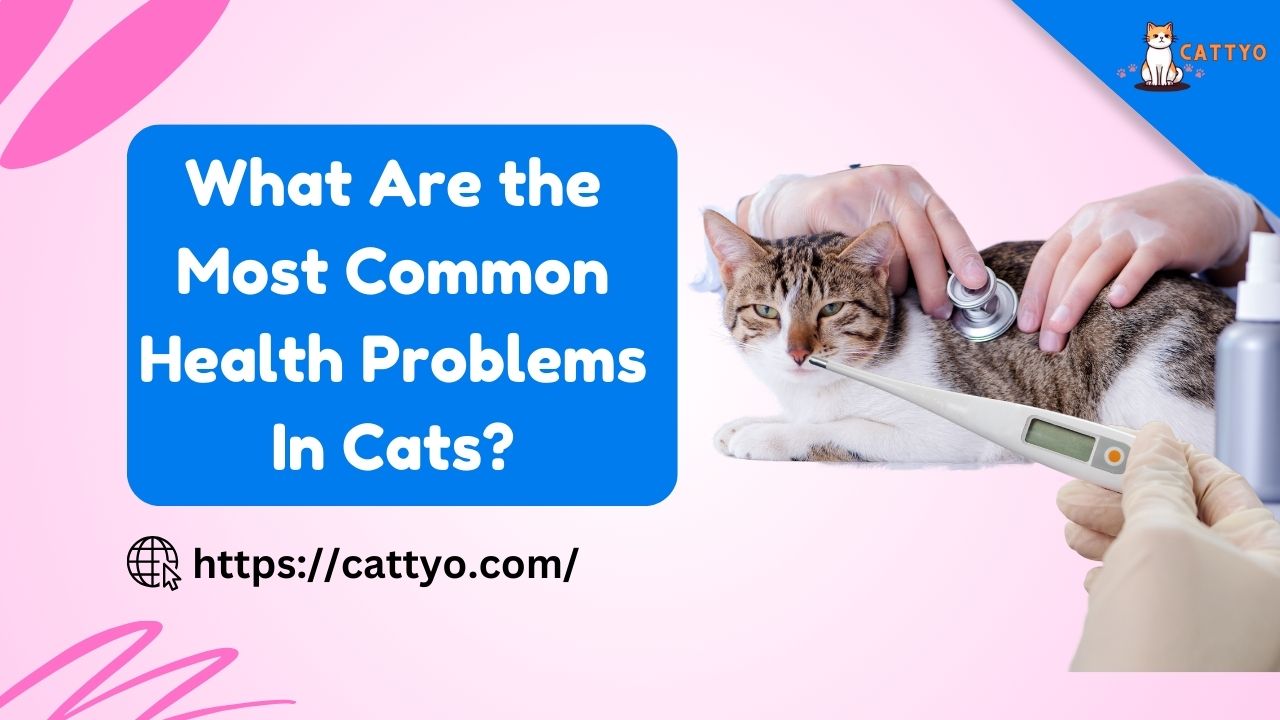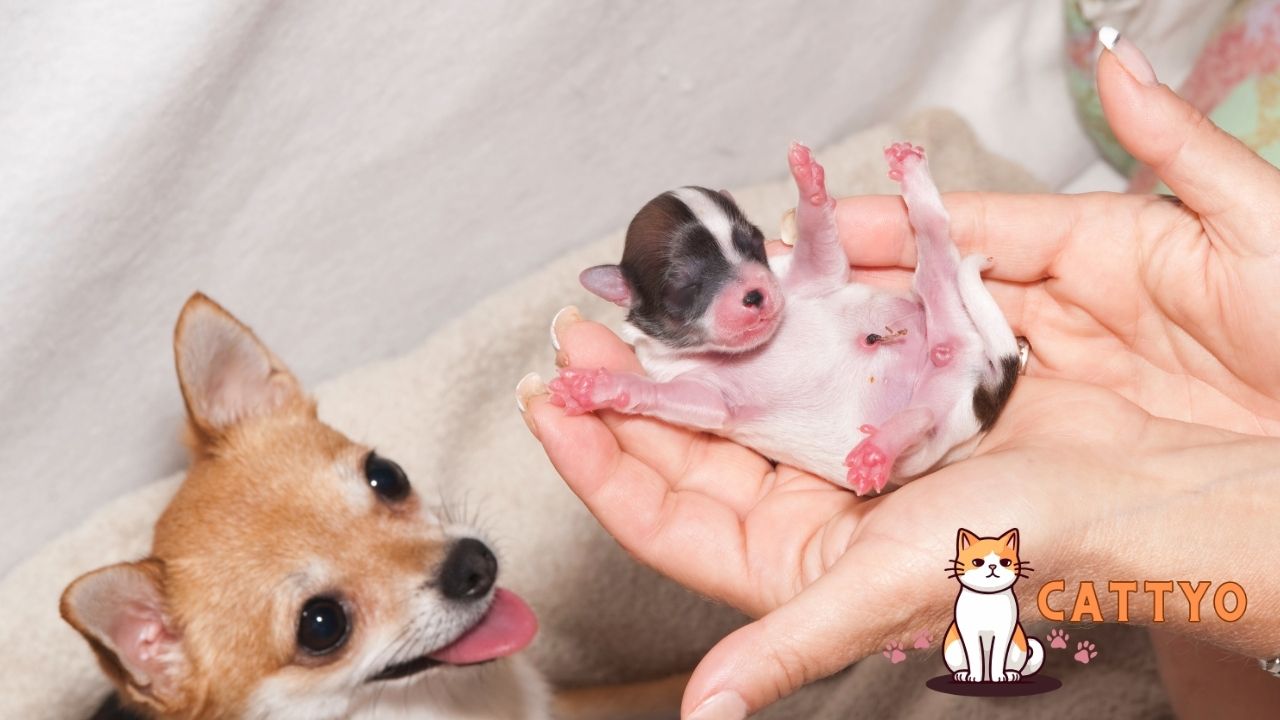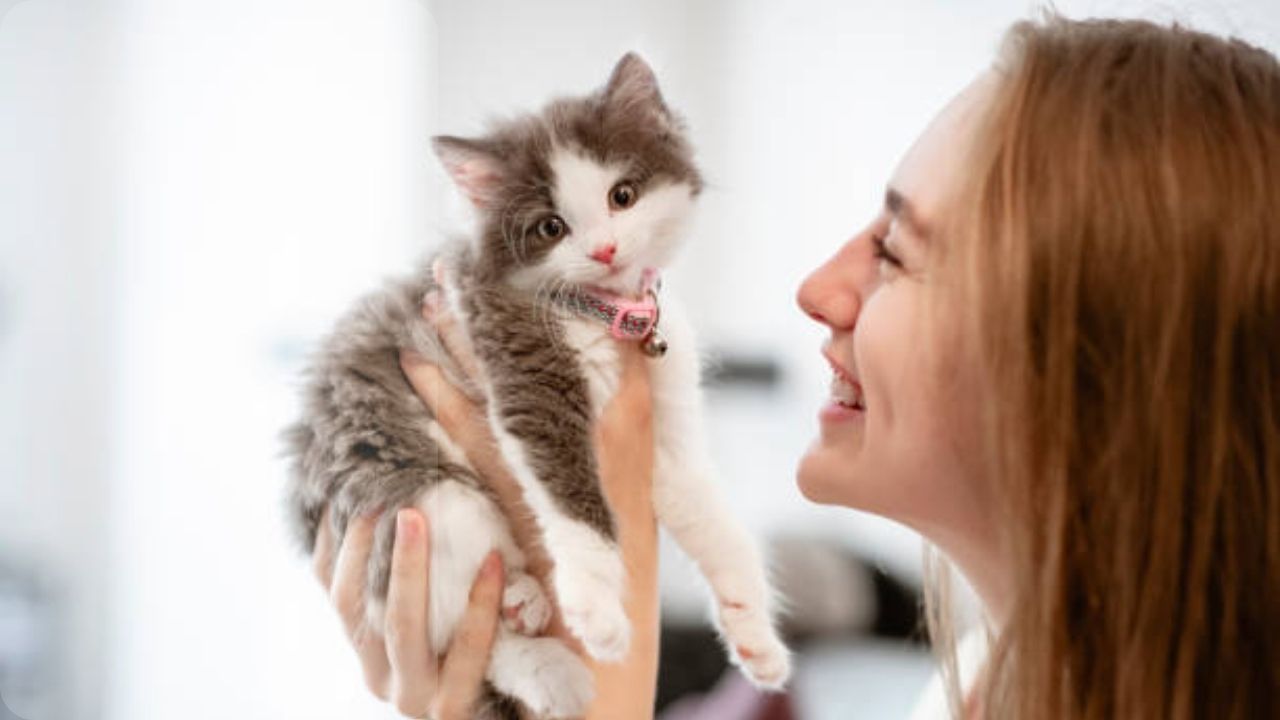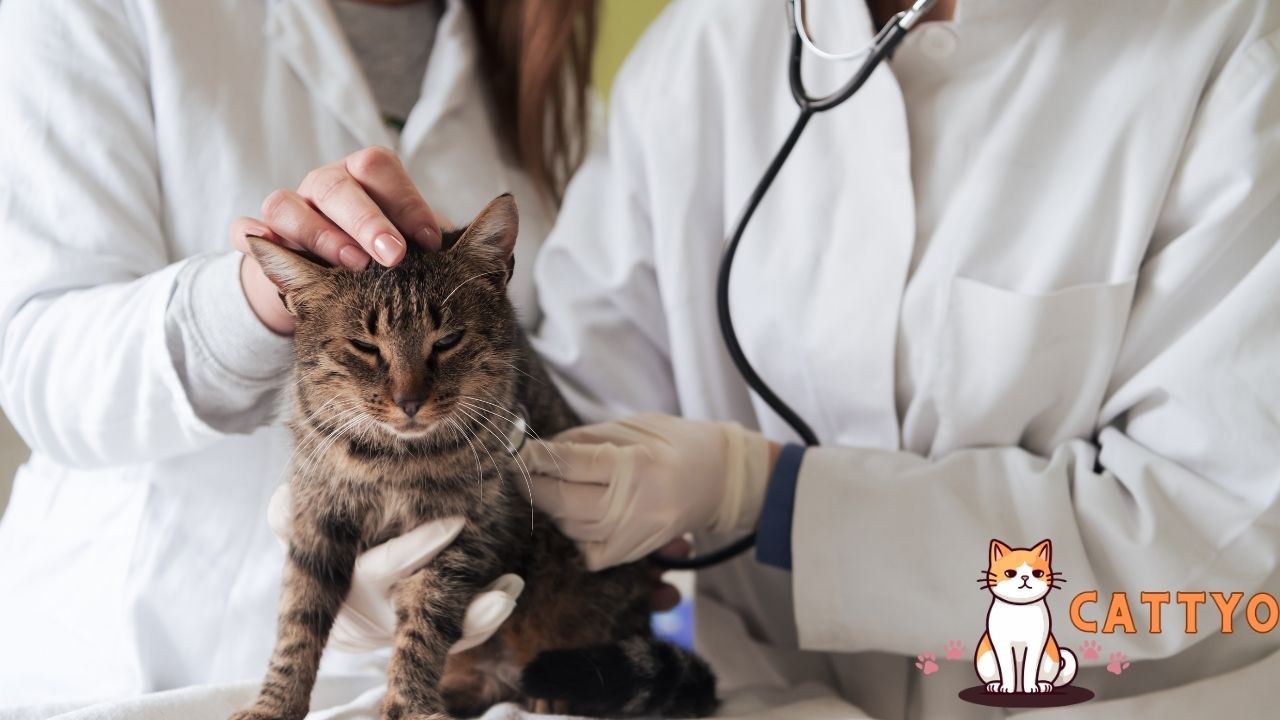If you’re a cat owner, you already know that these little furballs are more than just pets—they’re family.
And just like any family member, they have their quirks, their likes and dislikes, and yes, unfortunately, their health issues.
While we all want our cats to be happy and healthy, it’s important to be aware of the common health problems they can face.
After all, keeping an eye out for symptoms can help you spot potential issues early and get your feline friend the care they need.
So, let’s dive into the most common health problems in cats and talk about how you can help your fur baby stay in tip-top shape.
What Are the Most Common Health Problems in Cats?
Cats can suffer from a variety of health problems, many of which are preventable or manageable with early intervention. The most common health issues include:
- Dental Disease
Dental problems, including gum disease and tooth decay, are common in cats, particularly as they age. Poor dental hygiene can lead to pain, difficulty eating, and systemic infections. - Obesity
Overweight cats are at higher risk for conditions such as diabetes, arthritis, and heart disease. Obesity is typically caused by overfeeding, lack of exercise, or underlying health issues. - Urinary Tract Infections (UTIs)
UTIs are common, especially in male cats. Symptoms include frequent urination, straining, and accidents outside the litter box. If left untreated, UTIs can lead to more serious kidney or bladder problems. - Kidney Disease
Chronic kidney disease (CKD) is common in older cats and often develops gradually. Symptoms include increased thirst, frequent urination, weight loss, and poor coat condition. - Arthritis
As cats age, arthritis can cause joint pain and stiffness, affecting mobility. Cats may hide their discomfort, so it’s important to look for subtle signs, such as difficulty jumping or walking. - Feline Lower Urinary Tract Disease (FLUTD)
FLUTD refers to a group of conditions that affect the bladder and urethra. It can lead to painful urination, blood in the urine, and urinary blockages, especially in male cats. - Parasites
Fleas, ticks, and intestinal worms are common parasites that can cause discomfort and serious health issues. Regular parasite prevention is essential for keeping cats healthy. - Respiratory Infections
Upper respiratory infections (similar to the common cold) are frequent in cats, causing symptoms like sneezing, coughing, and nasal discharge. These infections can range from mild to severe. - Hyperthyroidism
More common in older cats, hyperthyroidism is caused by an overactive thyroid, leading to weight loss, increased appetite, and hyperactivity. - Diabetes
Diabetes is increasingly diagnosed in overweight or older cats. It affects insulin production and regulation, causing symptoms like excessive thirst, urination, and weight loss.
Regular veterinary check-ups, a balanced diet, and preventive care are key to managing these common health problems and ensuring a longer, healthier life for your cat.
1. Dental Disease: That Smelly Breath Could Be a Red Flag!
Alright, raise your hand if your cat has ever given you that “grin” with their mouth wide open—showing off their less-than-pleasant-smelling breath. We’ve all been there, right? But here’s the thing: bad breath isn’t just gross—it could be a sign of dental disease. Cats are notorious for having dental issues, and sadly, many owners don’t notice until things get pretty bad.
Why Does This Happen?
Just like humans, cats can develop plaque and tartar, leading to gum disease, tooth decay, and even tooth loss. This can cause pain and discomfort, which means your cat might start avoiding food or chewing on one side of their mouth.
Real-World Example:
I once had a cat named Mr. Whiskers (legendary cat, by the way). His breath was so foul that I thought something had died in the house. Turns out, he had severe gingivitis. It was heartbreaking to see him in pain, but after a professional cleaning and some regular brushing (yes, brushing your cat’s teeth is a thing), he was back to his happy self.
What Can You Do?
- Regular vet check-ups to catch any dental issues early.
- Consider dental treats or water additives.
- Ask your vet for tips on brushing your cat’s teeth (it’s easier than it sounds!).
2. Feline Obesity: The Kitty Who Loves Her Snacks
Alright, confession time: How many of us spoil our cats with an endless supply of treats? Guilty as charged. But here’s the thing—overfeeding or giving too many high-calorie treats can lead to feline obesity, which is actually a growing problem in the cat world.
The Problem with Obesity
When a cat becomes obese, it can put stress on their joints, heart, and organs. It can also lead to conditions like diabetes or fatty liver disease. So, while those cute, pleading eyes are hard to resist when they ask for that extra snack, it’s important to keep an eye on their weight.
Hypothetical Scenario:
Imagine this: You’re lounging on the couch, enjoying a Netflix binge, and your cat hops up next to you, staring at you like you’re holding the key to her happiness. You toss her a treat, and bam, she’s hooked. You’ve created a treat monster. But now, her belly’s getting a little too round, and you realize it’s time for a change.
What Can You Do?
- Measure out your cat’s food and avoid free feeding.
- Offer healthy treats—low-calorie ones are a great alternative!
- Encourage playtime to keep your kitty active. (Chasing a laser pointer never gets old!)
3. Urinary Tract Infections (UTIs): A Painful Problem
Is your cat suddenly peeing outside the litter box? Are they squatting frequently or crying out in pain while urinating? These could be signs of a urinary tract infection (UTI) or another urinary problem like cystitis. This is a big one, and it can be especially common in male cats, though females aren’t immune either.
What’s Going On?
A UTI is often caused by bacteria, but it can also be triggered by stress, dehydration, or even a blockage in the urinary tract. This can lead to discomfort, and if left untreated, it could turn into a more serious health concern.
Real-World Example:
A friend of mine had a cat who seemed fine one day, then suddenly stopped using the litter box and was clearly in pain. She took her to the vet, where they discovered a urinary tract infection. After a round of antibiotics, some changes to her diet, and making sure she always had fresh water, her cat was back to being her normal, box-using self.
What Can You Do?
- Keep your cat hydrated—especially if they’re on a dry food diet.
- Provide a clean, low-stress environment to avoid unnecessary stress.
- Take any changes in litter box behavior seriously and see a vet if it persists.
4. Fleas and Parasites: The Unwanted Guests
Cats are natural hunters, and sometimes their adventures outside bring home more than just dirt—they can bring home parasites like fleas, ticks, or worms. These pests not only make your cat itchy, but they can also cause health problems if left unchecked.
The Problem with Fleas
Fleas are tiny but mighty. They can cause itching, hair loss, and even anemia in severe cases. And if your cat happens to get fleas, there’s a good chance your home is going to get an infestation, which is a nightmare to deal with.
Hypothetical Scenario:
Picture this: Your cat starts scratching more than usual, and you notice tiny specks of dirt that look like pepper—those are flea droppings! Yikes. The problem isn’t just your cat anymore, it’s your entire home that needs to be treated.
What Can You Do?
- Use a good flea prevention treatment as recommended by your vet.
- Keep your home clean—vacuum often, wash bedding, and treat furniture if needed.
- Regularly check your cat’s coat for fleas or ticks.
5. Kidney Disease: A Silent Villain
Kidney disease in cats is a common condition, especially as they age. It often sneaks up without clear signs until it’s already progressed. The kidneys play a vital role in filtering toxins from the blood, and when they stop working as efficiently, your cat’s overall health can suffer.
Why Does This Happen?
As cats get older, their kidneys can start to lose function. This can be due to age, infections, or chronic conditions like high blood pressure or dental disease (told you dental problems could affect more than just their mouth!).
Real-World Example:
My cat Luna, an elegant, silver tabby, started drinking water constantly and urinating more than usual. It wasn’t until her vet appointment that we learned she had early-stage kidney disease. Thankfully, we caught it early and managed her diet and hydration, which made a huge difference in her quality of life.
What Can You Do?
- Keep your senior cat’s health under regular observation.
- Offer a kidney-friendly diet if prescribed by your vet.
- Make sure your cat has access to fresh water at all times.
Common Health Issues in Cats: Quick Reference Table
Cats face a variety of health problems that can impact their quality of life, from dental issues to more serious conditions like kidney disease. .
Regular veterinary check-ups, a balanced diet, and preventative care are essential to catch and manage these conditions early. Below is a quick reference table summarizing some of the most common health issues in cats and their symptoms.
| Health Problem | Common Symptoms | What You Can Do |
|---|---|---|
| Dental Disease | Bad breath, difficulty eating, drooling | Regular vet checkups, brushing, dental treats |
| Obesity | Weight gain, lethargy, difficulty jumping | Controlled feeding, healthy treats, more playtime |
| Urinary Tract Infections (UTIs) | Frequent urination, pain, accidents outside the litter box | Keep hydrated, clean litter box, vet checkup |
| Fleas and Parasites | Scratching, hair loss, visible pests | Flea treatments, clean home, regular checks |
| Kidney Disease | Excessive drinking, weight loss, vomiting | Regular vet visits, kidney-friendly diet, hydration |
FAQs: Common Health Questions About Cats
Q1: How do I know if my cat has a UTI?
A: If your cat is urinating outside the litter box, straining to urinate, or seems to be in pain when doing so, it’s time to see the vet. UTIs are common, and the sooner they’re treated, the better.
Q2: How can I help my cat lose weight?
A: Start by measuring out meals and limiting treats. Encouraging playtime is a fun way to help them burn off some of that extra energy (and calories).
Q3: What’s the best way to clean my cat’s teeth?
A: Brushing your cat’s teeth may seem tricky, but it’s worth the effort. Use a pet-safe toothpaste and try to brush a few times a week. There are also dental treats and toys that can help.
Conclusion: Keep Your Kitty Happy and Healthy
While cats can face a range of health problems, being proactive can make a huge difference in preventing or managing many of these issues.
Regular vet checkups, proper diet, and a little extra care can go a long way in keeping your feline friend feeling their best.
So, next time your kitty gives you that look, you’ll know you’re doing everything you can to keep them healthy—and maybe even have a little fun in the process.





